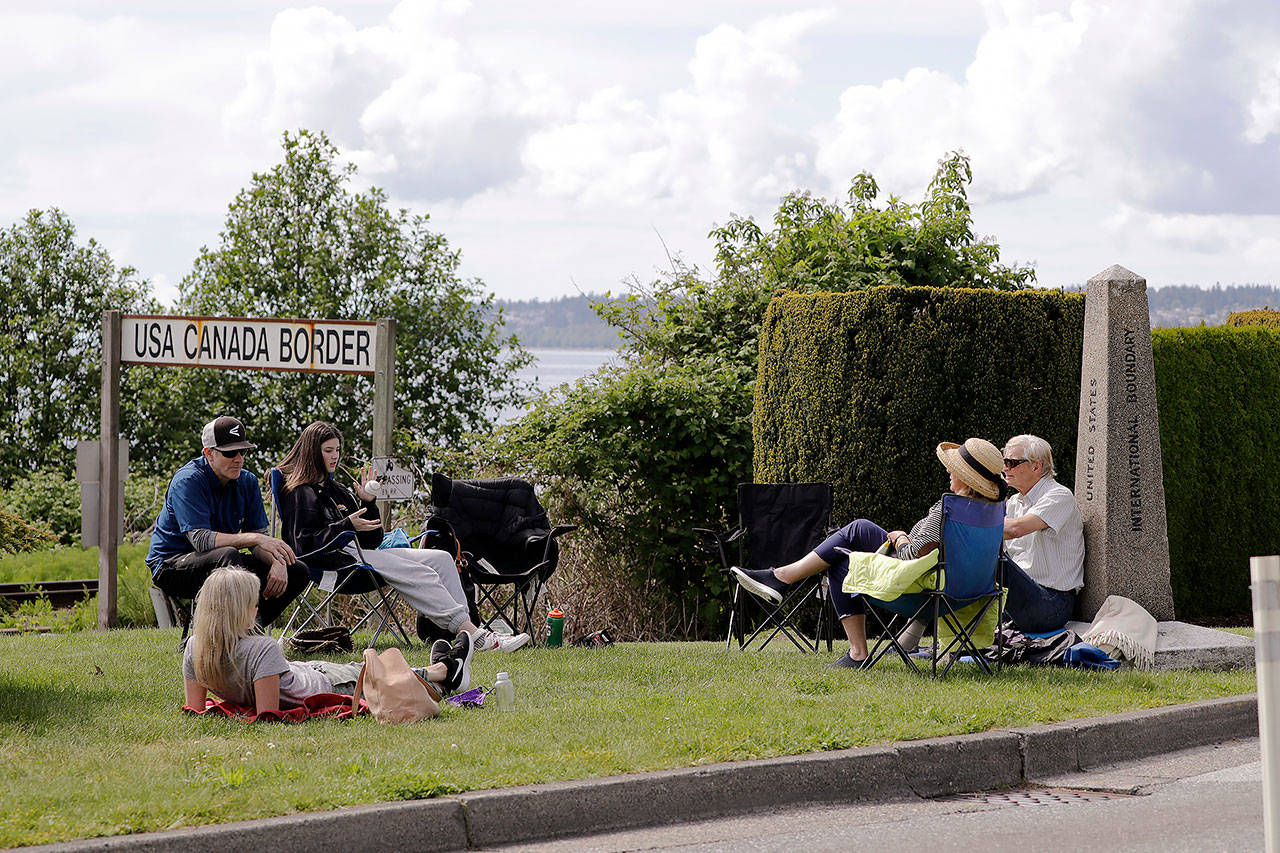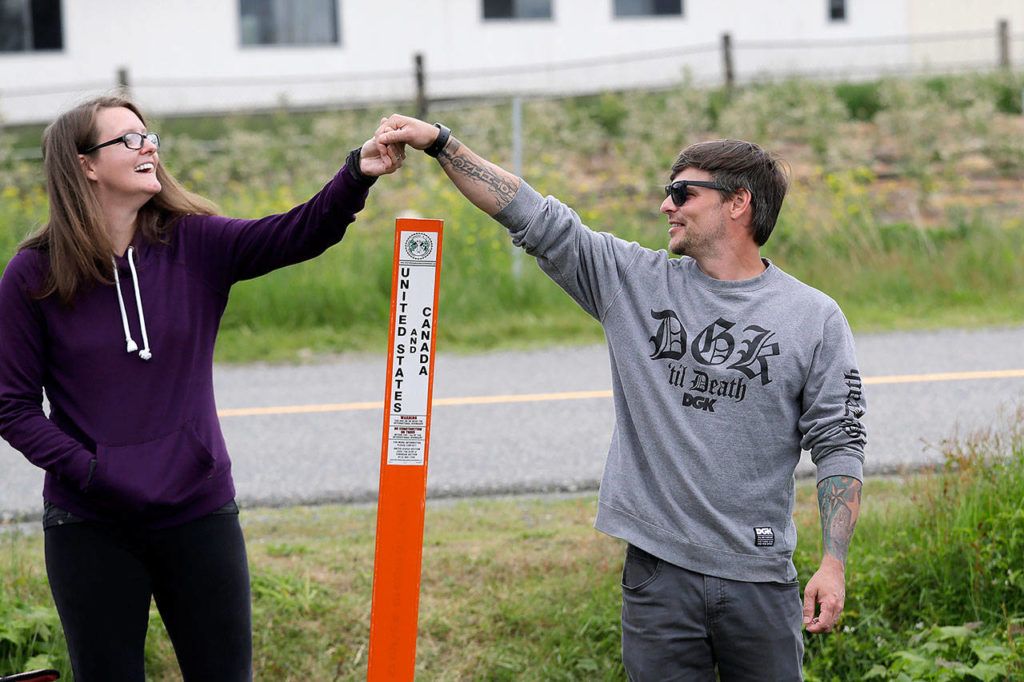By David Rasbach / The Bellingham Herald
The U.S.-Canadian border is currently scheduled to remain closed for more than three weeks due to the coronavirus pandemic, but most Canadians think a late June opening is still too soon, according to a recent study.
Meanwhile, British Columbia announced that it is extending its state of emergency because of COVID-19 for another two weeks, making this the longest state of emergency the province has ever seen.
The U.S. and Canada first announced the mutual closing of the border to all non-essential traffic on March 18 in an effort to prevent the spread of the respiratory illness. Those restrictions were extended in April and again on May 19 until June 21.
But a recent study by Angus Reid Institute, which advertises itself as “Canada’s non-profit foundation committed to independent research,” found most Canadians think June 21 is too soon — way too soon.
Less than one-in-five Canadians polled (19%) said the border should open when the current deadline expires, Angus Reid reported. Most (42%) said September would be a good target to re-open the border to non-essential traffic, while more than a quarter of those polled (26%) said the countries should wait until 2021.
And if the border does open June 21?
Sixty percent of Canadians who live close to the border said they definitely would not cross into the U.S. if the border were to open June 21, Angus Reid reported, and another 24% said they probably wouldn’t take a day trip south of the border this summer.
The United States has the highest number of coronavirus cases and deaths in the world, with 1.7 million confirmed cases and 101,562 related deaths as of Thursday afternoon, according to Johns Hopkins University. Canada, meanwhile, has 89,976 confirmed cases and 6,978 related deaths.
On the West Coast, British Columbia has 2,558 confirmed cases and 164 related deaths, according to Johns Hopkins, while the Washington State Department of Health reported 20,764 cases and 1,106 related deaths as of Wednesday night.
Like the border closure, British Columbia’s state of emergency was first issued on March 18, according to a ctvnews.ca story, and it has since been extended multiple times in two-week increments due to the pandemic.
On Wednesday, Premier John Horgan announced another extension during a news conference in Victoria, B.C., CTV reported.
Before COVID-19, the longest period the province had been under a state of emergency was during the 2017 wildfire season, but Horgan said that has now been eclipsed, CTV reported.
Horgan also said that he didn’t foresee any changes to travel in the near future, as he encouraged B.C. residents to stay home or visit other areas of the province.
“There’s a whole bunch of things that we can do right here in British Columbia,” he said. “Forty-two thousand people booked campsites on Monday. So there’s a lot of British Columbians who have things to do in B.C. that can stimulate our tourism economy.”
The Western Washington University Border Policy Research Institute has found that Canadians comprise approximately 75% of cross-border travelers to and from Whatcom County, depending on the exchange rate, according to information Associate Director Laurie Trautman in an email to The Bellingham Herald. In 2018, that would have represented approximately 10.5 million southbound Canadian travelers through the Blaine, Lynden, Sumas and Point Roberts points of entry.
Essential vs. non-essential
The Canadian Immigration Newsletter also obtained a 28-page internal Canadian Border Services Agency bulletin further clarifying which travel was deemed essential and non-essential by officers at the border during the closure and which types of crossing require a 14-day quarantine.
Among the situations not allowed, according to the information obtained by Newsletter, were:
• Visiting a Canadian spouse or family.
• Attending the funeral of a family member.
• Canadian citizens who live in the U.S. but have a secondary residence in Canada.
• Attending church.
• Going hunting.
• Shopping for clothes or other non-essential goods.
Among the situations allowed that may impact U.S. residents, according to the information obtained by the newsletter, were:
• A shared custody agreement across borders (with 14-day quarantine).
• Coming to Canada for the birth of a child (depends on hospital restrictions and must quarantine 14 days).
• Compassionate visitation, such as for an imminent death (depends on hospital restrictions and must quarantine 14 days).
• Students returning to continue studies (depends on the situation and must quarantine 14 days).
• Work permit holder whose primary residence is in Canada (with 14-day quarantine).
• Essential workers, such as nurses, firefighters and infrastructure crews that live in one country and work in the other (exempt from quarantine).
• Non-essential workers who live in one country and work in the other (if the business is permitted to be open, quarantine would be dependent on the nature of work).
• Seasonal agricultural work (with 14-day quarantine).
• Emergency workers who need to travel through Canada to get to another U.S. location, such as Point Roberts (exempt from quarantine).
Talk to us
> Give us your news tips.
> Send us a letter to the editor.
> More Herald contact information.


























